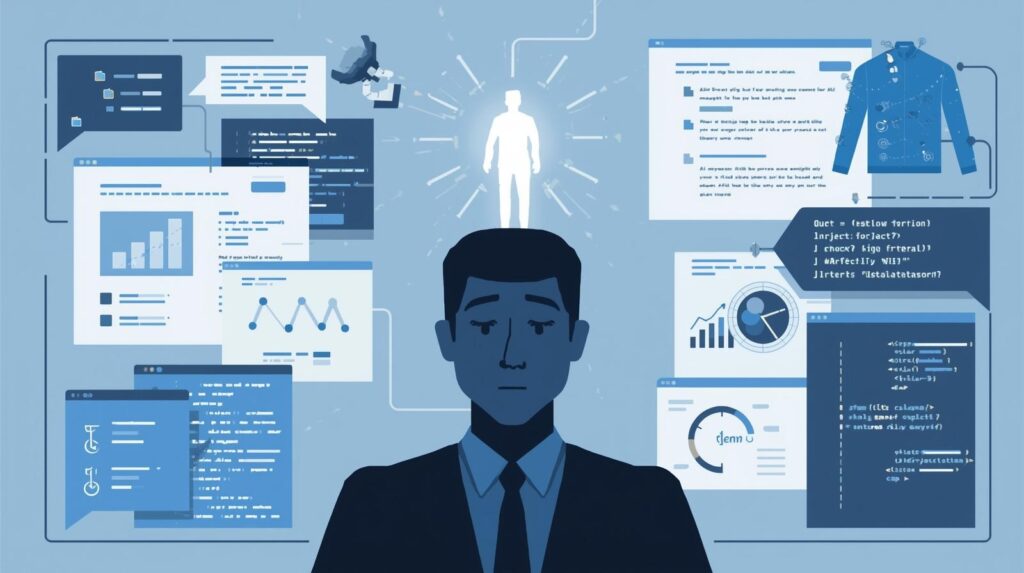
Enterprise applications are the engines of digital transformation. In 2025, their role has become more critical than ever. As businesses navigate complex market demands, these custom software solutions are essential for streamlining operations, improving efficiency, and driving growth. The stakes are incredibly high; modern enterprise apps must deliver on scalability, security, integration, and user experience without compromise. Selecting the right development partner is no longer just a technical decision—it’s a strategic move that can define your company’s future success.
This guide will walk you through the essential factors for choosing an enterprise application development company. We’ll cover what makes this type of development unique, key evaluation criteria, important questions to ask, and the red flags to watch for.
What Makes Enterprise Application Development Unique?
Unlike standard consumer apps, enterprise applications are built to handle high complexity, custom workflows, and integrations with numerous other business systems. They are the digital backbone of an organization, supporting core functions from finance to logistics.
These platforms, such as ERPs, CRMs, and supply chain management systems, require long-term scalability to grow with the business and robust support to ensure operational continuity. Furthermore, they must meet strict compliance standards, protect sensitive data, and perform reliably under heavy user loads. This combination of demands makes enterprise development a specialized discipline.
Why Choosing the Right Development Company Matters
Selecting the wrong development partner can have severe consequences. A poor choice can lead to significant project delays, budget overruns, and an application that fails to perform as needed. The impact goes beyond technical issues; a flawed enterprise app directly affects business operations, frustrates users, and can ultimately hurt your bottom line.
Think of your development company as a long-term technical ally, not just a short-term vendor. The right partner will understand your business goals, contribute strategic insights, and build a solution that provides value for years to come. Your business continuity may depend on making the right choice from the start.
Key Factors to Consider When Evaluating Companies
To find a partner capable of meeting your needs, evaluate potential companies against these critical criteria.
A. Proven Experience in Enterprise-Grade Applications
Look for a company with a strong portfolio of projects similar in scale and complexity to yours. Ask for client references and detailed case studies. A partner with proven experience in your industry—be it finance, healthcare, or manufacturing—will already understand your domain-specific challenges and regulatory landscape.
B. Technology Stack & Capabilities
A competent enterprise development firm should be proficient in modern technology stacks. This includes backend frameworks like Java, .NET, or Node.js, and frontend technologies such as React or Angular. Crucially, they must have deep cloud expertise with platforms like AWS, Azure, or GCP to build resilient and scalable solutions. Inquire about their experience with DevOps, CI/CD, and containerization, which are essential for efficient and reliable software delivery.
C. Security and Compliance
Security is not an afterthought in enterprise development. Your partner must have a deep understanding of enterprise-grade security standards and a proven track record of implementing secure architectures. Verify their knowledge of industry regulations relevant to your business, such as GDPR, HIPAA, or ISO standards. They should be able to explain their process for implementing measures like role-based access control and data encryption.
D. Scalability and Performance Optimization
Your enterprise application must be able to handle growth. Ask potential partners about their experience building scalable systems using architectures like microservices. They should have a clear strategy for managing real-time data and ensuring high availability. Performance testing and optimization should be integral parts of their development process.
E. Post-Launch Support & Maintenance
The work isn’t over once the application goes live. A reliable partner will offer comprehensive post-launch support and maintenance plans. Clarify their Service Level Agreements (SLAs), availability for troubleshooting, and their approach to application lifecycle management. This ensures your investment remains secure and functional long-term.
F. Communication and Project Management
Transparent communication is the bedrock of a successful partnership. The company should have experience with Agile methodologies and a clear structure for reporting and updates. If you are considering an offshore or nearshore partner, discuss time zone compatibility and how they ensure seamless collaboration across different locations.
Questions to Ask Before Hiring
Equip yourself with the right questions to vet potential partners thoroughly:
- Can you share case studies of enterprise-level projects similar to ours?
- What is your development methodology and quality assurance process?
- How do you approach scalability and performance testing for large-scale applications?
- What is your process for ensuring security and compliance throughout the development lifecycle?
- Who will own the intellectual property and source code upon project completion?
Red Flags to Watch Out For
Be cautious of companies that exhibit these warning signs:
- Vague Answers: A lack of clarity on processes or workflows is a major concern.
- No Support Structure: If they cannot define their post-deployment support, they are not a long-term partner.
- Overpromising: Unrealistic deadlines and unusually low costs often lead to poor quality.
- Poor Communication: A lack of technical clarity or responsiveness during initial conversations is a bad sign.
2025 Trends in Top Development Companies
Leading development firms are embracing new trends to deliver better outcomes. Look for partners who demonstrate a commitment to:
- AI and Automation: Using AI to accelerate development, testing, and operational workflows.
- Composable Architecture: Building applications from interchangeable components for greater flexibility.
- Data-Driven Development: Placing analytics at the core of the development process to inform decisions.
- Sustainable Tech: Focusing on creating energy-efficient and environmentally responsible applications.
- Hybrid Teams: Leveraging a mix of onshore and offshore talent for optimal flexibility and cost-effectiveness.
Conclusion
Choosing the right enterprise application development partner is a decision about capability, cultural fit, and long-term commitment. The success of your digital initiatives and the continuity of your business operations depend on getting it right. Take the time to evaluate vendors deeply and select a partner you can trust to build the future of your enterprise.
Ready to build or modernize your enterprise application? Contact a trusted development partner with proven enterprise expertise to get started.


